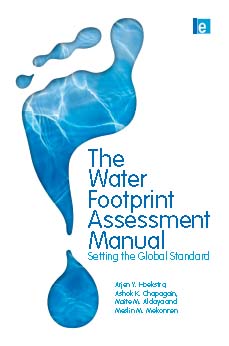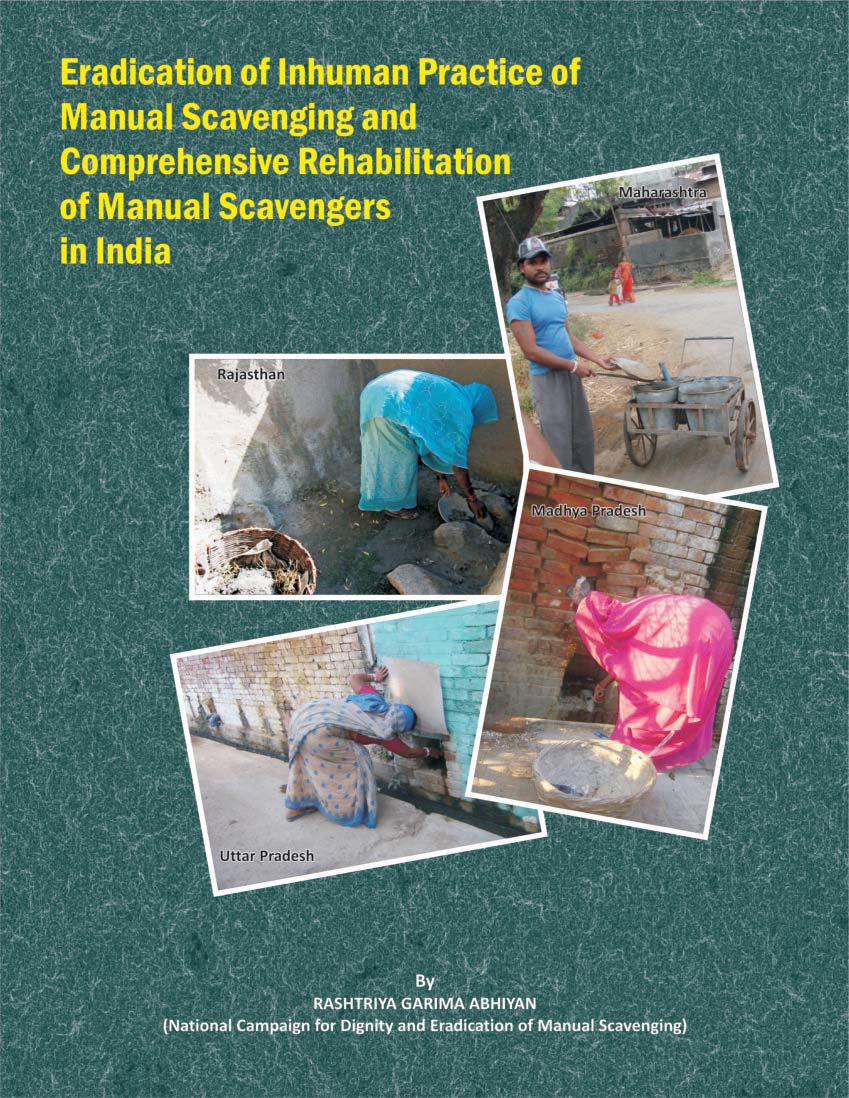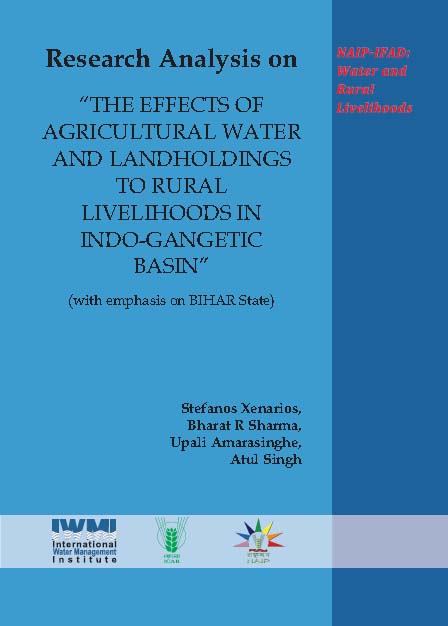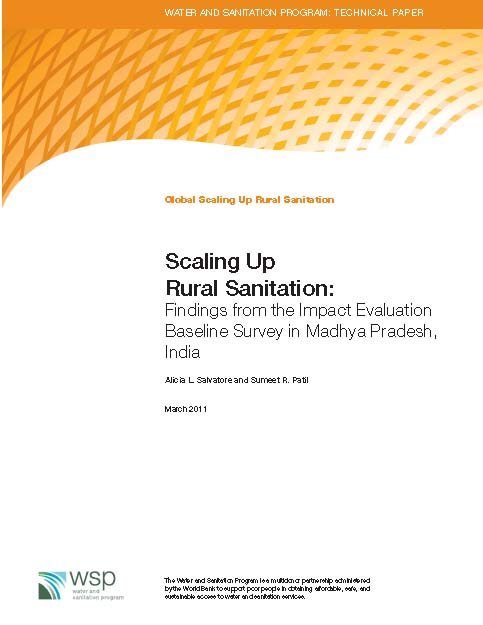/sub-categories/books-and-book-reviews
Books and Book Reviews
Hydrogeological investigations in and around JSPL plant area in Angul district, Orissa - A report by Green Systems
Posted on 22 Apr, 2011 11:55 AM The area's geological, hydrological and climatic facets are studied to arrive at a series of recommendations, which not only include the type of recharge structures and their design but also their location.
The report is divided into 9 chapters which are
Proposal for groundwater recharge in National Capital Region - A report by SK Sharma and Green Systems
Posted on 22 Apr, 2011 11:53 AMIt also explains the various laws that have been put in place to increase groundwater replenishment.
Irrigation system operation practices - A handbook by Central Water Commission (1990)
Posted on 21 Apr, 2011 10:36 PMFor increasing agricultural productivity from existing irrigation systems, improved operation of the systems coupled with timely maintenance of the systems has a major role to play.
The Water Footprint Assessment Manual: Setting the global standard – Methods for water footprint accounting by the Water Footprint Network
Posted on 21 Apr, 2011 10:14 PM This book by Earthscan contains the global standard for ‘water footprint assessment’ as developed and maintained by the Water Footprint Network (WFN). It shows how water footprints are calculated for individual processes and products, as well as for consumers, nations and businesses. It also includes methods for water footprint sustainability assessment and a library of water footprint response options.
This book by Earthscan contains the global standard for ‘water footprint assessment’ as developed and maintained by the Water Footprint Network (WFN). It shows how water footprints are calculated for individual processes and products, as well as for consumers, nations and businesses. It also includes methods for water footprint sustainability assessment and a library of water footprint response options.
A shared standard on definitions and calculation methods is crucial given the rapidly growing interest in companies and governments to use water footprint accounts as a basis for formulating sustainable water strategies and policies. The current manual is an updated, revised and expanded version of Water Footprint Manual: State of the Art 2009, published by the WFN in November 2009 (Hoekstra et al, 2009a). This new edition has been produced after intensive consultations with partners and researchers worldwide. Directly following the publication of the Water Footprint Manual, all partners of the WFN were invited to provide feedback on the manual.
Eradication of inhuman practice of manual scavenging and comprehensive rehabilitation of manual scavengers in India – A report by Rashtriya Garima Abhiyan
Posted on 21 Apr, 2011 09:15 PM The practice continues in the country in spite of efforts of several people, implementation of government schemes such as the National Scheme for Liberation and Rehabilitation of Scavengers since 1992 and Self Employment Scheme
The practice continues in the country in spite of efforts of several people, implementation of government schemes such as the National Scheme for Liberation and Rehabilitation of Scavengers since 1992 and Self Employment Scheme
The effects of agricultural water and landholdings to rural livelihoods in Indo-Gangetic basin – Research analysis by IWMI and ICAR with an emphasis on Bihar
Posted on 18 Apr, 2011 11:56 PM The current research analysis by International Water Management Institute (IWMI) in cooperation with ICAR Resear
The current research analysis by International Water Management Institute (IWMI) in cooperation with ICAR Resear
Scaling up rural sanitation: Findings from the impact evaluation baseline survey in Madhya Pradesh – A report by the Water and Sanitation Program of the World Bank
Posted on 18 Apr, 2011 08:20 AM This report by the Water and Sanitation Program (WSP) of the World Bank presents the findings of the baseline and community survey conducted in two districts of Madhya Pradesh (MP) - Dhar and Khargone. The goal of the program is to reduce the risk of diarrhea and therefore increase household productivity by stimulating demand for sanitation in the lives of people. The program also seeks to stimulate the supply of appropriate sanitation program and services by conducting market research and training local artisans to build the relevant facilities.
This report by the Water and Sanitation Program (WSP) of the World Bank presents the findings of the baseline and community survey conducted in two districts of Madhya Pradesh (MP) - Dhar and Khargone. The goal of the program is to reduce the risk of diarrhea and therefore increase household productivity by stimulating demand for sanitation in the lives of people. The program also seeks to stimulate the supply of appropriate sanitation program and services by conducting market research and training local artisans to build the relevant facilities.
In India, the program is supporting the Government of India’s (GoI) Total Sanitation Campaign (TSC) in two States: Himachal Pradesh and Madhya Pradesh. The main components of the intervention include: Community-Led Total Sanitation (CLTS), Social Marketing of Sanitation, Strengthening the Enabling Environment and Nirmal Gram Puraskar (NGP) Awards.
Handbook of fisheries and aquaculture - New book released by Indian Council of Agricultural Research (ICAR)
Posted on 21 Mar, 2011 05:55 PMA book review of "Convenient Action- Gujarat s Response to Challenges of Climate Change " , written by Narendra Modi
Posted on 14 Feb, 2011 12:12 PMThis book is being read by wider professionals all over the globe with interest and many people have also offered their review on the same. Keeping in view the activities of India Water Portal, we feel that it may be of interest for the portal readers to know more about this. One such review of the book written by Prof. D. T. Shete, Former Director, Water Resources Engineering and Management Institute, Maharaja Sayajirao University of Baroda, Vadodara is attached herewith.